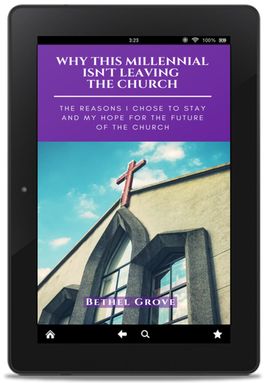|
I am so excited to share that I have another short book available for Valentine's Day, based on the blog posts I wrote while I was on the book team for Pulling Back the Shades and when I created one of the first spoken words on YouTube "Pulling Back the Shades of Grey". Curious on what the book is about? Here's the summary:
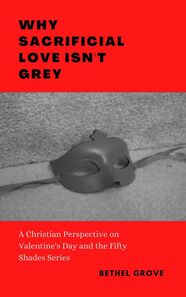
Does our culture's celebration of Valentine's Day really honor Saint Valentine? Would Saint Valentine disapprove of the Fifty Shades series and his name being used to promote it?
In our world today, love is defined in many ways that are vague. The love that Saint Valentine believed in was anything but grey - it was black and white, and sacrificial in its nature. In this short book, we explore the life of Saint Valentine, what his life and martyrdom can teach us today, and use this information to evaluate how he would most likely feel about the Fifty Shades being promoted in his name when the films were released. Even if you know very little about the series, this book will help equip you with a perspective from a biblical worldview. Includes a bonus article "Refuting Fifty Shades of Arguments", addressing 5 common arguments made by fans in favor of the Fifty Shades series, exploring the fault in their logic, and teaching how you can engage in conversations with them in a God-honoring way. Get your copy today! (Commission earned from any purchase made through the link below)
0 Comments
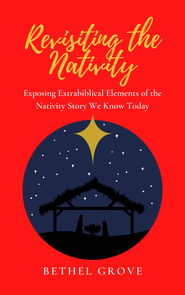
Is the nativity story we know today the same one recorded in the Bible?
Nativity scenes have become an iconic and beloved tradition of the Christmas season. Based on these decorations, plays, and films of this story, most of us think we have a pretty good idea of what the nativity looked like. However, when you take the opportunity to compare these traditional elements of the nativity story against the information the Bible gives us about the birth of Jesus, it becomes apparent that they don't match up. Using biblical study and research, this book exposes 17 traditional elements of the nativity story not mentioned in the Bible, challenging us to use the Bible as their foundation of knowledge before relying on tradition or assumptions. This will allow us to dismiss false facts so that we can focus on the real reason we celebrate the birth of Jesus - the miracle of His incarnation and willingness to become "Emmanuel", which should cause us to celebrate, not just on Christmas, but all year long.
Revisiting the Nativity is available as an eBook and paperback booklet on Amazon and Barnes & Noble. Get your copy today!
Note: This image contains an affiliate link. Amazon will give me a small commission for every purchase made through this link 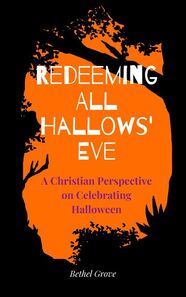 What if there was a way for Christians to redeem the celebration of Halloween? Halloween has been a topic of controversy among Christians for centuries. The arguments both for and against it are many, making it difficult for us to discern which side to take. Many of those that are opposed continue to bring up the origins of the holiday as being blatantly evil, believing nothing good can come out of it. Those that are for it would say that it’s just harmless entertainment or thrills. How are we supposed to decide if it’s OK to celebrate any part of it? Although it’s true that there are blatantly evil aspects to this holiday, there are ways for parts of the holiday to be redeemed. For this to happen, we need to take the opportunity to learn more about the history of the holiday and to recognize the evil parts of this holiday for what they are. Then we will use this knowledge to discern which parts of the holiday can be used and redeemed to bring glory back to the God that has the power over the darkness in our world today. Get Your Copy Today
Some of you may be surprised to discover that this is not my first blog. In fact, there was a time when I was managing three blogs at once! Back in the days before Twitter or Facebook even existed, or even as Myspace was gaining popularity, the most popular "social media" site (although that term hadn't even been invented at that point) among my junior high and high school friends was Xanga, which was primarily for blogging. At first, I had one personal account, but then I was interested in being involved with some fandom groups. I ended up making two more accounts, one about my favorite music group of the time Jump5, and the other for The Lord of the Rings. What was so interesting about what I did with those accounts though is that instead of just blogging about how much I loved these fandoms, I wanted to keep the focus on Jesus. My usernames on these accounts were Jump5lovesJesus and LOTR_LordofAllKings. I started to write devotional thoughts around lessons I’d learned from this film trilogy and music group. When I went back to these sites a few years ago, although I was kind of laughing at some of it, I was also surprised at how decent some of these devotions were. There were some pretty solid thoughts, considering I was 15 when I wrote them! When it came to the LOTR ones, most of the thoughts were not totally unique to me, for a lot of LOTR devotional books have talked about things like Aragorn’s servant/king journey, or Sam’s loyalty to Frodo, or even the boundaries changed by the trans-racial friendship of Legolas and Gimli. But as I was looking through these old blog posts, one of them stood out as being the most unique thought I shared, which was a comparison of an LOTR character with a prominent character from the Christmas story. And this idea has stuck with me ever since. How Frodo’s Story Relates to the Nativity Narrative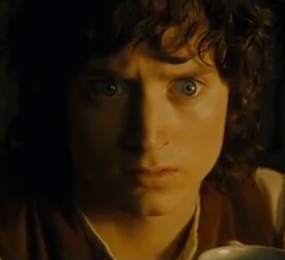 Frodo Baggins was shocked by everything Gandalf was telling him. He was only a Baggins of Bag End, a hobbit of the Shire. And it was just a simple Ring he had received as an heirloom from his Uncle Bilbo. Yet Gandalf told him that it was an instrument of absolute evil being sort out by the Dark Lord that created it. The Ring of Power, so it was called. If something was not done soon, the life of peace his kin-folk had known in the Shire would be gone forever, and this evil would eventually take over all of Middle-Earth. Gandalf told him that those seeking the Ring would be coming for it very soon. So the Ring could not stay the Shire anymore, and Frodo was the most likely candidate to take it out of the Shire since he had the Ring in his possession. Somehow, Frodo sensed that this task would be his to bear. Yes, he was afraid of what would lie ahead for him. He wondered why he was one that had this task fall into his lap. He wondered if he really could succeed with all this evil set against him. But somehow, he knew that this was something he needed to do. In the film version, when he comes to this realization, he takes hold of the Ring in his fist, and then he asks Gandalf a profound question without hesitation: Gandalf did not want Frodo to go on this journey alone, so when he found Frodo’s gardener under the window outside the house, he told Sam that he was go with Frodo with the instructions to never leave Frodo. Throughout the journey, Frodo is supported by Sam, but is also guided and comforted by those that had greater spiritual wisdom than he, like Gandalf and Lady Galadriel. Although he had no idea the amount of danger or the perils he would face, he knew that only he could complete this task, and he would be faithful to that task, no matter what. How Mary’s Story Relates to The Lord of the Rings 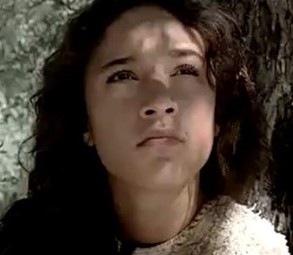 Mary was shocked by everything the angel of the Lord was telling her. She was just a simple, ordinary girl from the town of Nazareth in Israel. She was just trying to live her life the way she should, as she was preparing for her marriage. Yet this angel told her that she was to bear the Son of God himself, even though she was a virgin and had never been with a man. This child would not only be God’s son, but he would also be the Messiah that had been prophesied to redeem Israel for thousands of years. He would bring the salvation everyone had been hoping for. Not only did this not make any sense, but she also knew the way that this would look to everyone around her, including her fiancé. There was the possibility of facing a premarital divorce or public disgrace. She knew it would be impossible to convince others it was true. Yet somehow, she sensed that this must be her task to bear. She wondered why she out of all other women had been chosen, but the angel told her that she was favored in God’s eyes. Yes, she was afraid of what the future would hold, but she realized that this was something she needed to do. After the angel told her how it was going to happen to her, she responds humbly without hesitation: The Lord did not want Mary to go through this alone, so when her fiancé Joseph was ready to divorce her quietly, the Lord sent the angel to tell Joseph not to leave Mary. For that point on, Joseph supported Mary, but also guided and comforted not only by those that had greater spiritual wisdom than she: not only the angel, but also her relative Elizabeth. Although it was not easy and she had no idea what the future would hold, she knew that this was the task God had given her to complete, and she would be faithful to the task, no matter what. Similar Callings, Difference ResponsesAlthough their stories and their tasks are very different from each other, it’s interesting to see how similar their callings are and the support they received along their journey. As I look at their responses, I see two different ways that we may be called to respond, depending on our situation. Frodo was called to action. Something bad was going to happen and the clock was ticking. Although Gandalf didn’t directly tell him what he needed to do until he asked, Frodo understood from what he was told that something had to be done fast. Since the Ring was already in his possession, he was the most likely candidate to take the Ring out of the Shire. Eventually, when the Council of Elrond is trying to decide who would have the task of taking the Ring all the way to Mordor to be destroyed, he realized it had to be him. He declares that he will take the Ring to Mordor. When the Fellowship of the Ring is chosen, Boromir tells Frodo in the film, “You carry the fate of us all, little one.” But from the beginning, Frodo knew that he had to do something about it. Mary was called to faith. The angel told her what was going to happen; she just had to be willing to accept the task she had been chosen for. She didn’t technically volunteer for the job, but she accepted God’s decision with the greatest of humility. She just had to let it happen to her. Once she was pregnant, she simply had to live out each day and each situation she found herself in by faith. No matter what she faced, she had faith that the Lord will fulfill every single promise He had made to her. She simply had to do what He asked. It would even mirror the decision her Son would make the night before He was crucified, when He told the Father, “Not my will, but your will be done.” They both needed to surrender to the Father’s plan, no matter what the cost. Final ThoughtsI think that most situations we find ourselves in will require us to respond in faith, with action, or maybe both. But I find the examples given in these stories to be so striking. I feel like any of us should give one of those two responses any time God places something in front of us for our future. You probably won’t be called to destroy an evil ring in a volcano and you definitely won’t be called to bear a child as a virgin, but we will be called to action or faith throughout the circumstances in our lives. To ignore these callings is to ignore God’s best for your future. To accept will demand much, but will be more fulfilling that living our lives exclusively within our own plans. So next time you know God is calling you, remember these two responses: What must I do? Let it happen just as you say. ________________________________________________________________________________________________ To conclude this post, I thought I would share a video I uploaded to my YouTube channel a few years ago that was inspired by my original blog post. Its clips from The Lord of the Rings to the song Breath of Heaven by Amy Grant. I think a few people thought this was a little strange when I first started sharing this, but those of you that have read my thoughts here will better understand the point I was trying to communicate. Two lines worth paying attention to in regards to how they relate to Frodo’s story: I am waiting in a silent prayer / I am frightened by the load I bear Do you wonder as you watch my face / If a wiser one should of had my place One more thing I almost forgot: Merry Christmas and
Happy Incarnation Day! I love traditions, don’t you? At this time of the year, many dearly held traditions of gatherings with family and friends are revisited, and despite the fact that we've done it all before, they never get old. From the games to the food to the movies, we love our holiday traditions. We get comfortable with the way that we have always known things to be. We would never call these traditions into question. We continue to do these traditions as long as we are able, hoping that they will never change. We tend to feel this way about out traditionally held beliefs too. There are many “facts” about the nativity story that are merely traditions mistaken as facts. They can be hard to spot, because we are so use to thinking of these traditions as facts. There are also several parts of the story that confuse us because we struggle to understand biblical culture. I want to address some of the confusing parts and traditionally accepted “facts” of this great story, using my personal research and study. I do not claim to know everything, and there are some things that we cannot know for sure because the Bible simply does not tell us. But my hope is to help you better understand what the Bible actually says happened, and not to rely on traditional beliefs. 1. Jesus probably wasn't white (and probably not one else was either)How many of us have seen a black Santa? Some of us think that’s weird, because we are so used to seeing him as the jolly white man we know and love. I actually know of a white guy that used to live in my neighbor that brought and used the black light up Santa in his yard just because it was cheaper. Somewhere along the line, someone wanted to adapt the normal image of Santa to identify within a different cultural context. Do you know that people have done that with the nativity story too? We did the exact same thing when we made Jesus white. The truth of the matter is that Mary, Joseph and Jesus probably looked Middle-Eastern. They probably have had a darker complexion, brown or black hair, and brown eyes. They might have looked like the kind of people that we might be quick to label as Muslims or terrorists today. So did most of the other people in the story, probably including the wise men. It’s very common to portray them with three different ethnicities: one black, sometimes one Asian, and one white. However, there is nothing in the text to indicate the ethnicity of any of them. Historical research shows that the eastern school that they most likely came from was located in Babylon, which is located in present day Iraq. It’s possible that these men were scholar who moved to Babylon to study, but the Bible doesn’t actually tells us for sure. There’s a good chance that they were all Middle-eastern. That presents a different appearance to these scenes than we are used to seeing. 2. Mary probably walked to BethlehemDespite the popular traditional belief, the Bible mentioned nothing about Mary riding a donkey. The journey from Nazareth to Bethlehem was only 70 miles, which would have taken 3 or 4 days. Joseph probably would not have been able to afford to buy and keep a donkey, considering that he was a newly married craftsman. Although it can't be confirmed that she didn't ride one, the fact that it is not mentioned in the biblical account calls it into question. She most likely had to walk. The text also mentions nothing about the difficulty of the journey because it was a normal kind of trip in those days. It wasn’t quite as difficult and treacherous as some film versions make it out to be. 3. Mary was probably not in labor when they arrived in Bethlehem
Because of the size of the census, they had to go to Bethlehem as soon as they could, but they probably had to wait for their turn to register. It was probably during this waiting period that Mary’s time came and she gave birth. If she had been in labor when they arrived, it probably would be have been detailed in the gospel written by the Luke the physician, since he is often very detailed in his accounts of illnesses and ailments in other places in his books. They also may not have had the time needed to gather things such as the swaddling clothes if the baby had come that soon. Besides, there were probably anxious to leave Nazareth for a time since they both were probably facing ridicule for Mary's unplanned pregnancy. They would not have waited until the last minute to leave. 4. Mary and Joseph may not have been rejected by every place in BethlehemIt is also a popular tradition to portray their rejection by several inns before they found an innkeeper compassionate enough to squeeze them into their stable. However, this part of the story is completely made up! The text says nothing about them knocking on doors and being rejected by other inns in Bethlehem. It does say there was no room for them to stay, but this is misunderstood to mean several things that it doesn’t. Those that interpret this passage this way have a major misunderstanding of Jewish culture. The Jews had a high sense of hospitality, and it would have been highly unlikely for them to turn people away, especially a young couple with child. The fact that the place where they stayed still found somewhere for them to stay even when there was no room illustrates this kind of hospitality. If they had gone knocking on several doors and had been rejected all over town, it most likely would have been recorded. This is also a misunderstanding of the concept of an inn. Inns were a Roman concept, and Bethlehem probably didn’t have a real inn since there were such a small town. Most people that would have wanted to stay at an inn probably would have gone to Jerusalem, which was only 5 miles north. The word “inn” is probably better translated as “guest room,” inferring a private house. It is also quite possible, since Joseph was from the family of David, that whoever took them in was actually a relative, who would have been unlikely to turn them away. This may be confusing to those of you that have the picture of the wooden stable in your mind, but that is probably not accurate either. Read the next point to see what I mean. 5. Jesus was probably born in a private house, not a wooden stableAlthough the wooden stable is a dearly loved tradition, the Bible mentioned nothing about a stable. The only thing that implies a stable is the manger. Wooden stables were not common in Israel because wood was scarce. In fact, stables separate from the house were also rare. This tradition also relates to a cultural misunderstanding of what an inn was verses a guest room. Based on biblical research, there is a high possibility that Jesus was born inside a private home, not in a stable. To show you what I mean, here’s a diagram to illustrate. This diagram illustrates the way that many houses would have been set up in Jesus’ day. The room for the guests was on the second floor. The main floor would have probably been the last place that would have the room and privacy needed for giving birth. This main area of the living quarters would have had a manger for when they usually brought the animals in at night. Mark Moore’s commentary, The Chronological Life of Christ, suggests this paraphrase of Luke 2:6-7, “Sometime after Mary and Joseph came to Bethlehem, Mary gave birth. Since the guest room was already filled, she delivered in the main living area of the house and used the manger as a crib.” (Moore 50) I think there is a possibility that they actually did stay in the crowded guest room until Mary gave birth, then they moved downstairs. This is something that we cannot know for certain, but it is interesting to see that it has been presented as fact. 6. There may not have been any animals at the birth of JesusIt is very popular to depict animals at the birth of Jesus, because of the belief that he was born in a traditional wooden stable. However, the Bible mentioned nothing about animals at the birth of Jesus. Again, the only thing that indicates animals is the manger, and there’s a possibility this manager was in the house or brought inside the house for the baby. But the only animals mentioned in the entire nativity narrative are the sheep of the shepherds outside of town, and the account doesn’t tell us if they brought any of the sheep with them to see the baby. It appears that there were excited enough by what they heard that they might have abandon their flocks to see the child. If Jesus was born inside, and the house was crowded enough to have people staying the main living quarters that night, there probably did not have the room to bring the animals inside. They probably stayed outside. Besides, the animals obviously couldn’t use their feeding trough! And again, if animals had been there, it probably would have been recorded. 7. Joseph probably didn’t delivered the baby
8. Jesus was not born on December 25Although we celebrate Jesus’ birth on this date, most scholars agree that Jesus was not born on December 25. The most obvious argument against this date is the shepherds. The shepherds, who are described as being nomadic, simply would not have been watching their flocks at night in the winter. It is not practical or logical. Also, the idea that the governor would have called for a census right at the start of winter is not practical or logical. We are unsure of the date of Jesus' birth at all, although it is more likely to have been in spring or summer for these same reasons. 9. The angels did not sing to the shepherdsHow many of you have seen a Christmas play put on by kids or with kids in it when they cutie angels would sing a song? I’ve been one of those angels. Although it’s cute, it’s not necessarily accurate. It is very common to portray the angels that came to shepherds outside of Bethlehem singing their message of peace and goodwill. It sounds nice, but it is simply not true. There is no mention of these angels (or any other angels in all of Scripture) singing their message. It clearly says that they spoke their message. Besides, I personally think that the shepherds would have been less terrified by a company of heavenly hosts singing than to them than by the heaven hosts speaking with a mighty unified voice. 10. The star probably did not appear over Bethlehem at the birth of Jesus
11. The number of wise men are unknownIt is a commonly held tradition that there were three wise men that visited Jesus, because they had three gifts. Tradition even made up names for them. However, we do not know the number of Magi, or their names. Magi is the plural of Magus, so the only thing we know for certain is that there were at least two. There may have been three, but it is also likely that there was a bigger group of Magi that studied together that made the decision to travel to Bethlehem. I have heard someone argue that Herod would not have been so disturbed about the announcement of Jesus’ birth if only two or three Magi had come to Jerusalem to see him. 12. The wise men were not at the birth of Jesus
- First, the account in Matthew describes Jesus’ birth in the past tense: “After Jesus was born in Bethlehem” “Where is the one that has been born King of the Jews?” - Second, Herod had to ask when the star had appeared. This is very interesting clue that is often ignored. Most people did not realize the significance of the star, because it says that all of Jerusalem was disturbed, or shocked, along with Herod by what the Magi said. No one had taken notice of it, even in a culture where people were familiar with the stars. After all, they didn’t have the same light pollution we have today, which meant their eyes were adjusted. When they slept on their roofs during the summer, they were seeing the stars. Maybe they didn’t know as much as the Magi, but they were familiar with them enough that they would have noticed something out of the ordinary. That’s why it’s interesting to notice that everyone was shocked when they heard about the star the Magi had been following. It took scholars that studied stars to realize that what was happening in the sky indicated the birth of a Jewish king. If the star has been as out of the ordinary as it is often portrayed, Herod would not have had to ask. - Third, according to what Herod learned from the Magi, the star had appeared two years before. The Magi said they “saw the star when it rose” (Matt 2:2 ESV). The star had risen in the east two years earlier, either when Jesus was born, or possibly when he was conceived. It is because of Herod's knowledge of this timing that he orders the slaughter of the baby boys in Bethlehem that were born in that time frame.
- Fifth, it is unlikely that Jesus could have been dedicated at the temple on the eighth day (as is recorded in Luke 2) if the Magi had arrived at his birth. Bethlehem is so close to Jerusalem (5 miles south on the main road), that Herod’s order to kill the baby boys probably would have come within the week and they would have had to flee from the baby slaughter before they could have gone to Jerusalem. Mary would have also been unclean from the birth, and therefore unfit to travel by the Law of Moses (A woman was unclean for 7 days about giving birth to a male child, until she offered her purification offering on the eighth day). If the slaughter was a few days later, it still would have been unsafe for them to go to the temple if Herod was looking for the child. - Lastly, if these events (the birth, the shepherd’s visit, and the Magi’s visit) had overlapped each other, it most likely would have been recorded in both accounts (Matthew and Luke) Final ThoughtsHopefully, this inspires you to look at the nativity narratives again with a better understanding of what the Bible says and you are able to see some of the areas in which our culture has embellished the story. It's crazy for me to see how off some of these traditional versions of the nativity story have exaggerated what is actually written. But even amid all the traditions and alterations that this story has gone through over the last 2,000 years, one thing remains the same: “The Word became flesh and made his dwelling among us.” John 1:14a (NIV)
|
Lion's Eyes Reviews is a blog dedicated to reviews of Christian books, most of which are non-fiction, but may also occasionally review movies and musicals. It will also feature the work Bethel does to help launch and promote the works of Christian authors.
The name is derived from one of Bethel's favorite books, Through the Eyes of a Lion by Levi Lusko. Through these reviews, Bethel hope to give Christians the tools they need to look at the world "through the eyes of a lion" so they can find the courage to "run toward the roar". To find the detailed archives of these reviews, you can check them out here: Books In Review Movies in Review Broadway In Review Quick Reviews To understand the rating used in these reviews, click here Categories
All
Archives
May 2024
|
|
Bethel Grove is a Christian young woman who loves to read and write, eat Reese's Peanut Butter Cup Blizzards, and disciple teen girls as a youth leader. What started as a hobby of writing book reviews and doing deep biblical studies eventually led her down the path of self-publishing and helping other Christian authors launch their books. She hopes to someday be a vocational youth minister and well-known author.
Follow AUthor Bethel Grove
|
Receive This eBook for FreeSign up for Bethel's newsletter to receive monthly updates for Abiding Grace Ministries, and you will receive a copy of this exclusive eBook for free
|








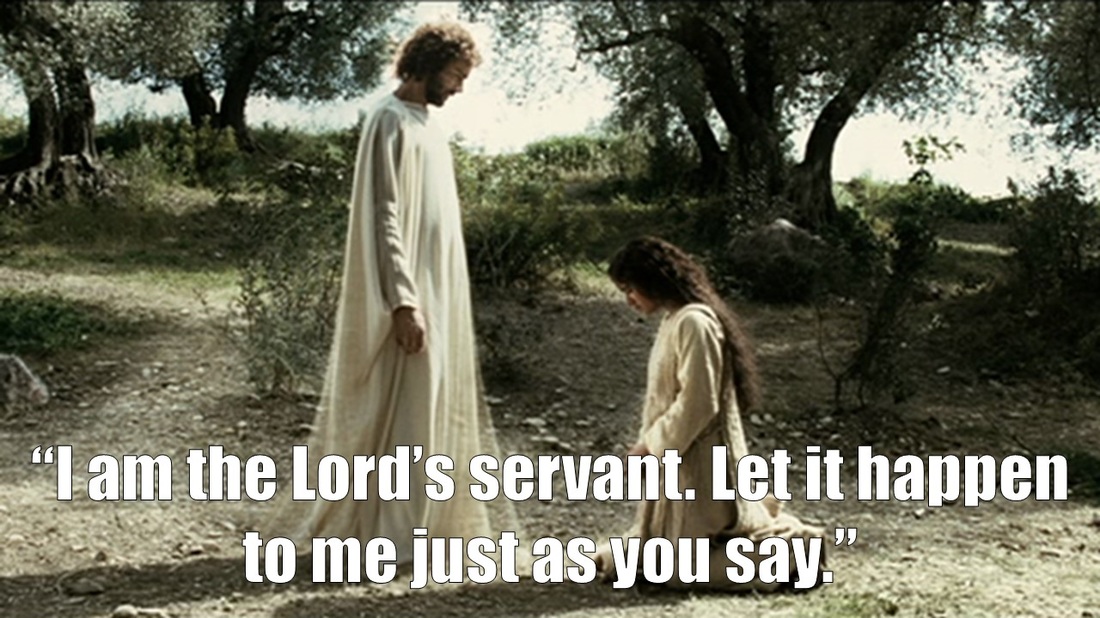
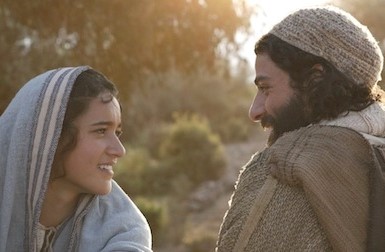
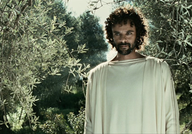
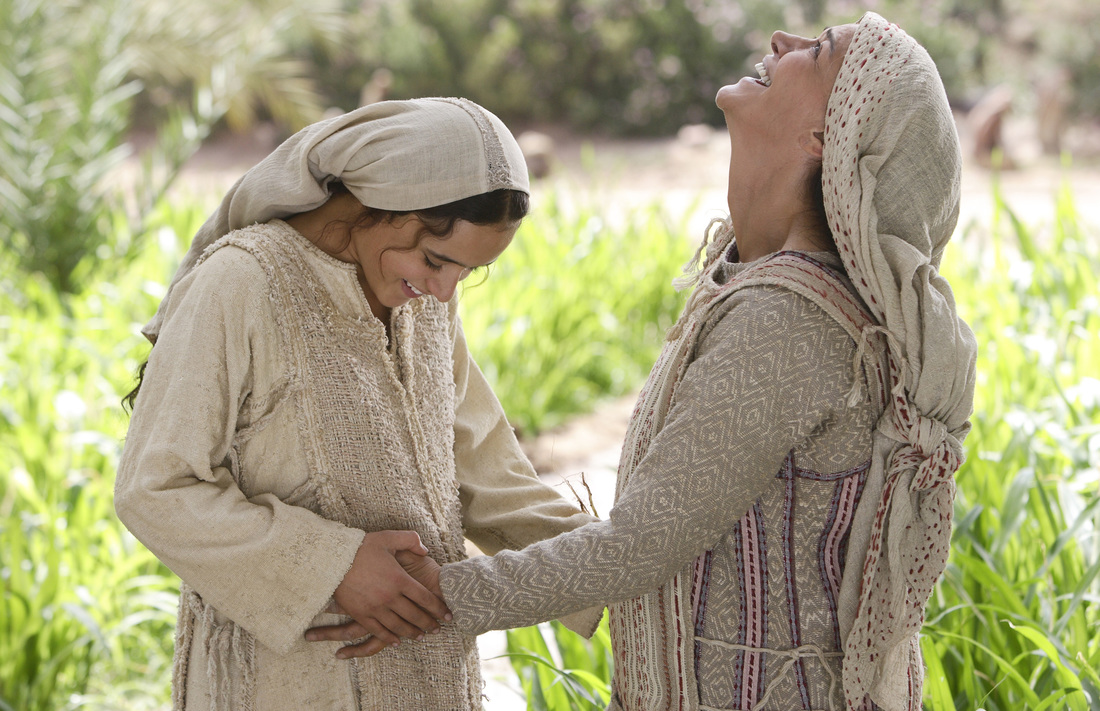

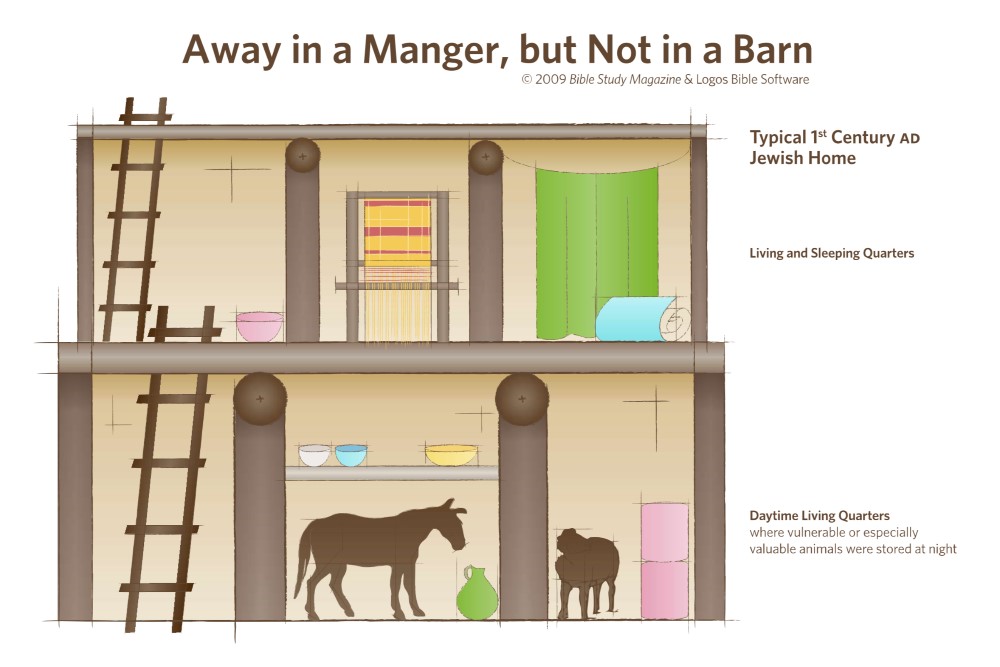
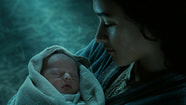
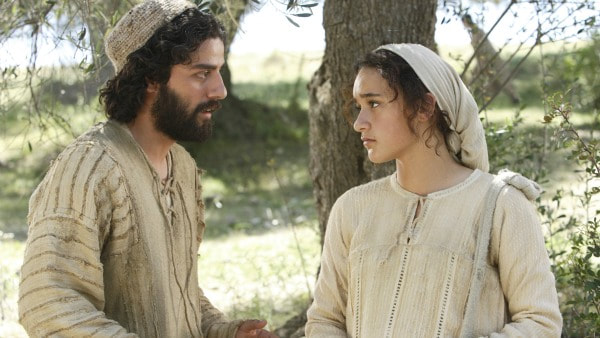

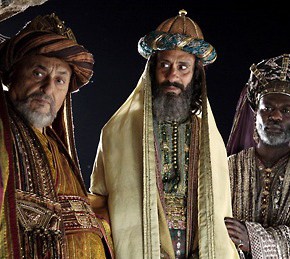
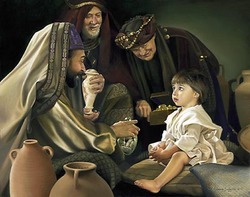

 RSS Feed
RSS Feed

